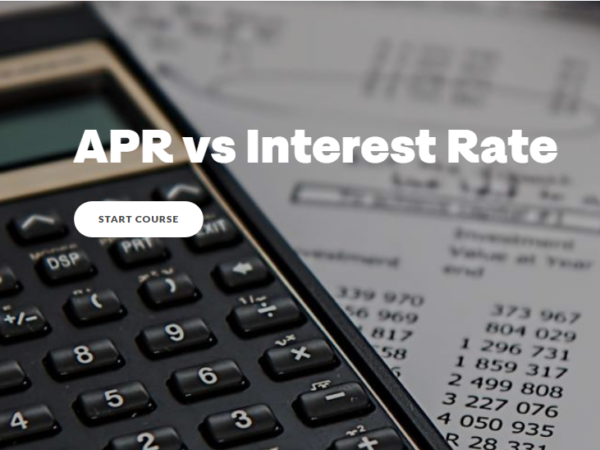How Does Underwriting Work?
Discover how underwriting works in order to improve your chances of receiving financing for your small business.

When the time comes for your business to apply for a loan, you’ll want to read our guide to the application process so you can give yourself the best chance for approval. This article will help you understand how underwriting works.
We’re going to give you a look at how the decision is made. Let’s examine the process of underwriting, or how a lender actually figures out whether or not you’re eligible for a loan.
What Does an Underwriter Look At?
The exact criteria may vary somewhat from lender to lender, but the Small Business Administration (SBA) has a standard many adhere to. The SBA says:
Prudently underwritten small business loans should reflect all relevant credit factors, including:
- Capacity of the income from the business to adequately service the debt.
- Value and quality of the collateral.
- Overall creditworthiness of the borrower.
- Level of equity invested in the business.
- Any secondary sources of repayment.
- Any additional collateral or credit enhancements (such as guarantees or key-person insurance).
Let’s explore what each of those means and what an underwriter would be looking for.
Income to Adequately Service the Debt
In a nutshell, this basically means your business has to be making enough money to pay back the loan with interest. How does an underwriter know this? By analyzing your financial statements. For most small businesses, cash flow will be key. How much are you currently taking in each month and how much is going out? Will you have enough left over to pay off a loan without crippling your business? What are your projections for the future?
Expect to provide information about your revenues, operating expenses, and net income. You’ll also be asked about your current assets and liabilities. An underwriter will look to make sure that the numbers make sense for the amount you are asking to borrow.
There is a very important human element, as well. The story of your business is equally important. For many underwriters, understanding the type of business you own and operate fleshes out the picture, provides important context, and puts the numbers in perspective.
Collateral
The Small Business Association (SBA) defines collateral as “an additional form of security which can be used to assure a lender that you have a second source of loan repayment.” It’s basically a safety net for the lender. They want something to fall back on if you can’t pay back the loan. Nobody wants that to happen, but an underwriter will have to determine how much your collateral is worth.
Collateral is an additional form of security that assures a lender that you have a second source of loan repayment.
The most common form of collateral is property, such as a home, but it can also include inventory or equipment. Always keep in mind that using your personal assets as collateral means you’re willing to risk losing them if you default. Of course, with smaller loans, less collateral would be required.
If you’re concerned about a lack of collateral, discuss that with the lender. Even with all the documentation required, loan approval is still a determination made by a person. In the end, the purpose of a lender’s underwriting process is to build trust between two partners (the lender and the client). The more we understand, the better we can help!
Credit
No doubt about it, this one’s important. How you’ve treated debt in the past is one of the best predictors for how you’ll handle it in the future, so underwriters will certainly look into this.
If your business is young or a startup, your personal credit history will be even more important. Having a history of borrowing money is helpful because lenders can see if you repaid that debt in a timely manner. And yes, delinquencies are an issue. The underwriter will want explanations for why they occurred, and may request written proof.
It’s always a good idea to know what your credit picture looks like before approaching a lender. By law, you’re entitled to receive a free copy of your credit report from each of the three big credit bureaus once per year. To do so, you can visit the central credit report website they set up for this purpose or call toll-free 1-877-322-8228.
Some lenders will only consider lending you money if you meet their minimum credit score, but others will consider it within the context of the rest of your application. Sometimes, an underwriter can find other strengths in your business or finances to make the loan possible even if your credit score isn’t ideal.
Equity
Your own investment in the business is another signal to an underwriter that you are committed to its success. Sometimes, equity is referred to as “capital” on a loan application. Capital can be in the form of how much of your own money you put into the business initially, how much of the company’s earnings you’ve held onto, or other personal assets you’ve invested back into the firm. An underwriter will usually look more favorably on a small business when the owner has made a personal investment.
Secondary Sources of Repayment and Additional Collateral
In their underwriting guidelines, the Federal Reserve Board and Federal Deposit Insurance Corporation recommend lenders analyze other sources of repayment and collateral, as well as the business owner’s ability to come up with additional capital if necessary.
This means you will likely have to sign a personal guarantee that says you’ll be responsible to repay the loan if the business cannot. You may also be asked to have a co-signer for the loan, someone other than you who is not involved in the business and has a steady source of income.
Other Factors
Every lender will have its own underwriting criteria and will weigh each item differently. As a rule, the less documentation you need to provide, the higher the interest rate will be. If you satisfy most of the items listed above, your chances for approval are good.
There is no downside to applying to a reputable lender first to see where you stand.
There are organizations that will make loans to those with damaged credit or with little-to-no documentation, but those loans may cost you dearly. Interest rates in those situations can be as high as 45% to 1000% APR, which ultimately may destroy a small business. Make sure to fully understand the cost of the loan offered from an alternative lender. Sometimes these loans are a great deal for the business, and other times the cost of capital is simply too high.
How to Help the Underwriter Help You
Read up on the documentation you need to have, and get it ready in advance. Be prepared to show your strengths as a borrower and offer explanations for any weaknesses you might have. Consistency is a big theme: the business story has to make sense and the documents provided need to back it up.
Having a solid business plan is the best way to tell your story and will go a long way toward answering many of the questions an underwriter might have. The better you can do that, the better your chances are for approval.
Learn More
When it comes to your finances, you want clear guidance and easy to implement tools based on your unique needs. Visit Learn with AOF to get started strengthening your financial management and meeting your goals.
Experience a different kind of financial education. Learn with AOF has flexible, on-demand courses developed by small business owners, for small business owners. Learn on your schedule, with no time commitment or limit. Save your progress any time to fit courses into your busy schedule.









